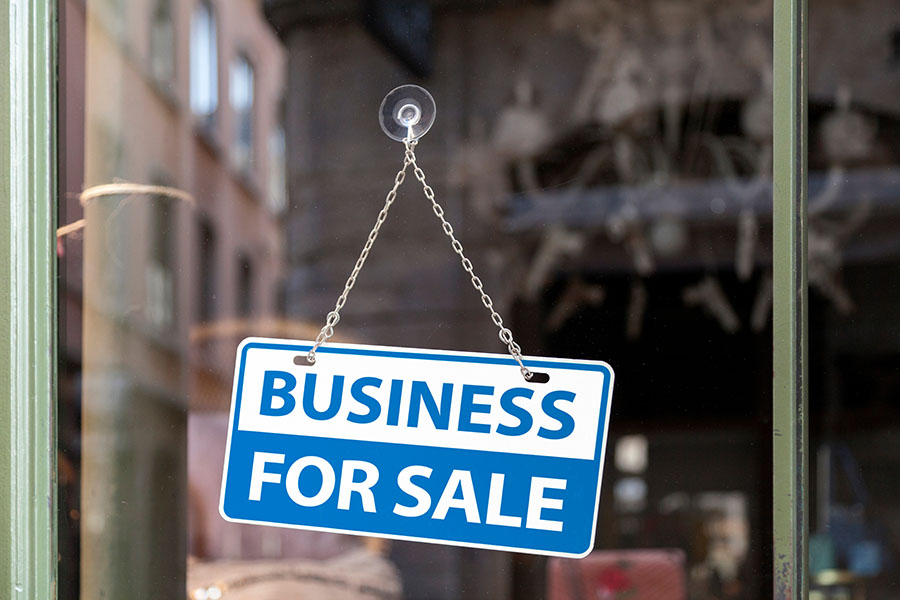(Editor’s note: This column is based on the author’s presentation during Pizza Expo 2025.)
If you’ve been running a pizzeria and are starting to think about your next chapter, this guide is for you. After successfully selling two pizzerias myself, I’ve learned what it takes to get top dollar. The biggest mistake is waiting too long to sell. Most people only start thinking about selling when they’re burned out, their sales are declining or their equipment is falling apart. By then, it’s too late to get the value your business deserves.

Scott Sandler (Courtesy photo)
Even if you’re currently expanding or loving every second of running your pizzeria, it’s smart to start planning your exit strategy. Having a strong plan in place ensures that when the time comes, you’ll walk away with money in your pocket. If you’re wondering how to maximize the value of your pizzeria, focus on these variables:
- Sales and Profit Margin: A high volume of sales with strong profit margins is crucial. If your numbers aren’t solid, buyers won’t be interested.
- Brand Recognition: A strong, well-loved brand can outweigh smaller sales figures. People will pay for goodwill.
- Staff: A fully trained, reliable team adds security for buyers. Having a strong staff means a new owner can step in and hit the ground running.
- Condition of Equipment: Keep your equipment up to date and in great shape. Poorly maintained gear can scare buyers away.
Start Positioning Your Pizzeria for a Sale
Selling a pizzeria isn’t just about listing it when you’ve decided to move on. It’s about creating something others will want to buy. Whether you specialize in a specific type of pizza, have an iconic location or offer something fun and cool, a strong brand adds significant value. That said, buyers love clean records. Keep a detailed record of expenses and profits for at least three to four years before you sell.
I recommend working with a broker and a good lawyer. Brokers know how to market your pizzeria to the right buyers and negotiate the best price. A skilled lawyer ensures you don’t get tricked into signing bad contracts. Trust me, it’s worth paying the commission for professional help.
Real Estate and Assets
Do you own the building where you operate, or are you leasing the space? Each comes with its own quirks when it comes time to sell. A lease with only a year or two left can make buyers nervous because they’ll need to negotiate a new lease with the landlord. If your lease is almost up, try to renew or extend it before selling. The longer the lease, the more attractive it’ll look to a potential owner.
If you own the building, you’re in a unique position. You can choose to sell the business and keep the building, becoming the new owner’s landlord and earning rental income. Alternatively, you can sell both as a package deal, which typically increases the overall sale price.
Pro tip: Keep your equipment in great shape. If your mixer is about to give out or your oven’s struggling to heat evenly, potential buyers will notice. If you want top dollar for your pizzeria, start upgrading gradually before you sell.
Your Pizzeria’s Value Is What Someone Will Pay
When buyers look at your business, they’ll focus on what’s on paper. How much revenue are you generating? Are your expenses under control? Make sure you’re being honest with your financials. If you’re not reporting all your sales (or, if you’re mixing personal expenses into your business profits), you’re going to scare off serious buyers.
Selling your pizzeria – especially one listed at $200,000 or more – usually means the buyer will need to secure financing or an SBA loan. That means the bank is going to treat this like an inspection. They’ll grill you about everything from tax returns to lease terms. So, get your ducks in a row before you go to market.
What Not to Do When Selling Your Pizzeria
Don’t close your business before selling: No one wants to buy a closed restaurant. If the doors are shut, it screams “failure” to buyers. Plus, employees leave, the buzz dies down and the equipment depreciates faster than you think.
Don’t rely on “potential” to sell: You might think, “Hey, with all these new apartments going up in the neighborhood, my pizzeria’s value will skyrocket!” But most buyers won’t shell out for potential. They buy based on what the business is doing now.
How Much Can You Expect to Make?
What is your pizzeria actually worth? For most mom-and-pop pizzerias, the magic formula is 1-2 years of profit. If you’ve been clearing $150,000 per year? You’re likely looking at sale value of $150,000-$300,000. That might sound like a lot at first, but don’t forget about taxes and expenses (fees for your broker and lawyer). If your profit margins are slim or inconsistent, that number might drop even lower.
I sold my first pizzeria because I opened a second location and didn’t want to juggle managing two places. A broker’s son paid me all cash (rare, but hey, it happens!). My second sale happened post-pandemic. I was burned out and tired from running everything 24/7, when two interested buyers walked through the door almost serendipitously. Did I make a ton of money? Nope, but at that point, the relief of selling outweighed the profit.
Cash deals are straightforward and help you avoid a lot of the headaches (and risks) that come with financing. Owner financing can expand your pool of potential buyers, but it has its risks. From buyers defaulting to legal battles and disappearing acts, I can count too many horror stories where it went south. Personally, I wouldn’t offer to self-finance unless you’re experienced, financially stable enough to take a loss and up for the stress of waiting for those checks to roll in month after month.
Final Tips for Selling Smart
- Choose the Right Buyer: Don’t just sell to anyone with a checkbook. Find someone who shares your vision and will take care of your legacy.
- Plan Ahead: Whether it’s taxes, legal issues or building maintenance, the better prepared you are, the smoother the sale will go.
- Know Your Worth: Understand the value of your business, not just financially but also in terms of brand, customer loyalty, and community impact.
- Be Realistic: Selling a pizzeria won’t necessarily fund your retirement – especially if it’s a single location. Build a plan for what’s next.
Selling your pizzeria might feel like the end of an era, but it’s also a chance to start a new chapter. Whether you’re planning to retire, pursue new opportunities, or step away from the grind, selling your business should leave you proud of what you’ve built. Remember, businesses don’t sell themselves. Start preparing today, focus on building value, and when the time feels right, take the leap. After all, your pizzeria deserves nothing less than top dollar.
SCOTT SANDLER is the owner of Pizza Via in St. Louis, Missouri.



